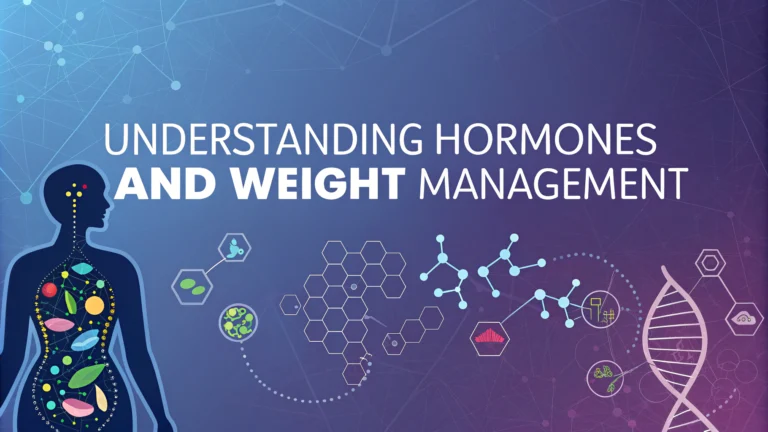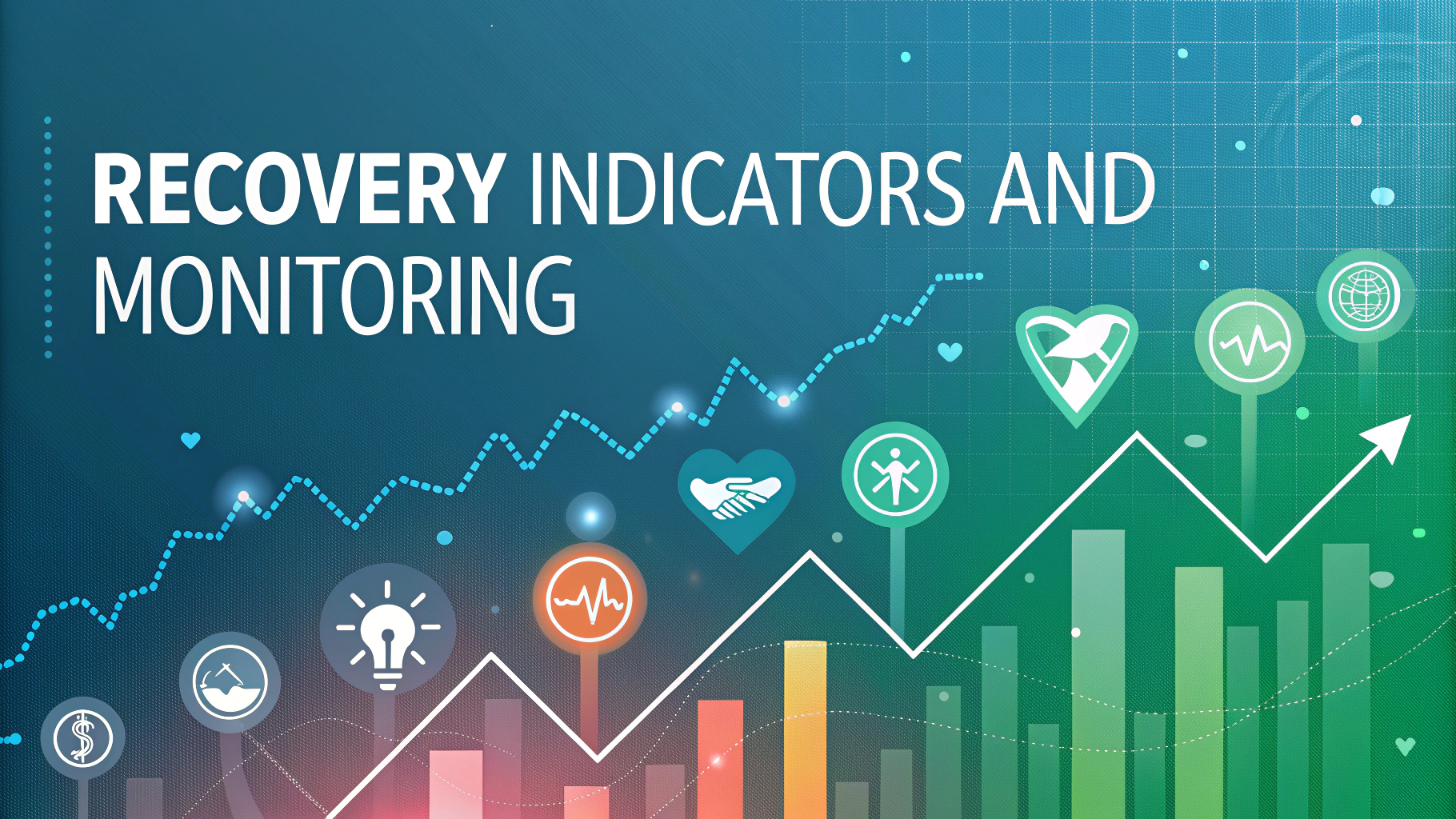Hormones play a key role in how our bodies store and burn fat.
This guide breaks down the connection between hormones and weight, with practical steps to optimize your hormonal health for better weight management.
Key Hormones That Affect Weight
- Insulin: Controls blood sugar and fat storage
- Cortisol: Stress hormone that can increase belly fat
- Leptin: Signals fullness to the brain
- Ghrelin: Triggers hunger signals
- Thyroid hormones: Regulate metabolism
Signs of Hormonal Imbalance
- Unexplained weight gain or difficulty losing weight
- Intense food cravings
- Fatigue despite adequate sleep
- Irregular menstrual cycles in women
- Mood swings and irritability
Practical Steps to Balance Hormones
1. Optimize Sleep
Aim for 7-9 hours of quality sleep each night in a dark, cool room.
2. Manage Stress
- Practice daily meditation or deep breathing
- Take regular walks in nature
- Consider stress-reducing activities like yoga
3. Smart Nutrition Choices
- Eat protein with every meal
- Include healthy fats from avocados, nuts, and olive oil
- Minimize processed foods and added sugars
- Eat plenty of fiber-rich vegetables
4. Exercise Effectively
- Mix strength training with cardio
- Avoid overtraining, which can spike cortisol
- Include recovery days in your workout schedule
Supplements That May Help
| Supplement | Benefit |
|---|---|
| Magnesium | Supports sleep and stress management |
| Vitamin D | Helps regulate hormones and metabolism |
| Omega-3s | Reduces inflammation and supports hormone production |
When to Seek Professional Help
Contact an endocrinologist if you experience persistent symptoms despite lifestyle changes.
Find a qualified endocrinologist through the Hormone Health Network.
Simple Daily Habits for Hormone Balance
- Eat meals at consistent times
- Stay hydrated with clean water
- Limit caffeine after 2 PM
- Take short walks after meals
- Practice gratitude to reduce stress
Track your progress using a journal or app to identify patterns in your hormonal symptoms and responses to different interventions.
The Role of Environment in Hormone Health
- Minimize exposure to endocrine disruptors
- Use natural cleaning products
- Choose organic produce when possible
- Store food in glass rather than plastic
- Filter drinking water
Creating a Hormone-Friendly Lifestyle
1. Time-Restricted Eating
Consider limiting eating to an 8-10 hour window to support natural hormone cycles.
2. Social Connections
- Maintain strong relationships
- Join support groups
- Share goals with accountability partners
3. Regular Health Monitoring
- Schedule regular hormone level checks
- Track symptoms in a health diary
- Monitor weight and measurements monthly
Common Mistakes to Avoid
- Crash dieting
- Ignoring sleep quality
- Overreliance on caffeine
- Skipping meals
- Excessive exercise without recovery
Conclusion
Achieving hormonal balance requires a holistic approach combining proper nutrition, adequate sleep, stress management, and regular exercise. Start with small, sustainable changes and gradually build healthy habits that support your hormonal health. Remember that hormone balance is highly individual, and what works for others may not work for you. Stay consistent with your chosen strategies and adjust based on your body’s responses.
Monitor your progress and don’t hesitate to seek professional guidance when needed. With patience and persistence, you can optimize your hormone levels and achieve better weight management outcomes.
FAQs
- How do hormones influence weight gain and loss?
Hormones like insulin, cortisol, thyroid hormones, and leptin regulate metabolism, appetite, fat storage, and energy expenditure. When these hormones are imbalanced, they can make it harder to maintain a healthy weight. - What role does insulin play in weight management?
Insulin helps cells absorb glucose from the blood and promotes fat storage. High insulin levels from excessive sugar consumption can lead to insulin resistance and make weight loss more difficult. - How does stress affect hormones and weight?
Chronic stress increases cortisol production, which can lead to increased appetite, particularly for high-calorie foods, and greater abdominal fat storage. - Can thyroid problems cause weight changes?
Yes, hypothyroidism (underactive thyroid) slows metabolism and can cause weight gain, while hyperthyroidism (overactive thyroid) speeds up metabolism and can cause weight loss. - How does sleep affect hormones and weight management?
Poor sleep disrupts ghrelin and leptin levels, increasing hunger and reducing feelings of fullness, which can lead to overeating and weight gain. - What impact do estrogen levels have on weight?
Estrogen fluctuations, particularly during menopause, can influence fat distribution and metabolism, often leading to increased abdominal fat storage. - How does testosterone affect body composition?
Testosterone helps build and maintain muscle mass, which increases metabolic rate. Low testosterone levels can lead to increased body fat and reduced muscle mass. - What dietary choices can help balance hormones?
A diet rich in whole foods, lean proteins, healthy fats, and fiber while limiting processed foods and sugar can help maintain hormone balance. - How does exercise influence hormone levels?
Regular exercise can improve insulin sensitivity, reduce cortisol levels, increase growth hormone production, and optimize testosterone and estrogen levels. - What role does leptin play in weight management?
Leptin is the satiety hormone that signals fullness to the brain. Leptin resistance can develop in obesity, making it harder to recognize feelings of fullness.







